My partner and I have a friend who jokes about the fact that we never have anything but very specialized magazines lying around. Next to the piles of Strings Magazine and The Strad, my non-specialized reads are as specialized as Yoga Journal, VegeLife, and Massage Magazine. When Ben, a software architect, contributes Dr. Dobbs, Mac LIfe, Communications of the ACM, and Wired, (the later being his most mainstream read) to the pile, you can readily see what she means. Sometimes I pick up a Yes! or Utne from the library, but we’re pretty content with the content we have lying around.
The truth is, I find gems all the time in Ben’s magazines...really interesting articles that I can apply directly to aspects of my world. The most recent example happened today when I flipped open Communications of the ACM (Association for Computing Machinery) to an article by Phillip G. Armour entitled “The Business of Software: Contagious Craziness, Spreading Sanity”. The article examines the infectious workplace behavior of impossible predictions and promises causing perpetual overcommitments. One example was the case of a strong-willed, forceful vice-president putting pressure on his managers to come up with numbers and projections they secretly believed to be impossible. Because everyone who was playing along was being praised and rewarded, it only reinforced the behavior.
Though it might seem unlikely, I came away with confirmation on two issues I have been dealing with in my teaching studio.
The first is provided by this quote from the article: “...having a strong conviction that something cannot be done is usually a self-fulfilling prophecy. If people are convinced that something is not achievable, then they usually won’t achieve it-if we argue for our limitations, we get to keep them.”
Though it has always been a strong focus in my own exploration and in my teaching, through the process of writing my book, I have been hypothesizing and examining the mind’s role in playing violin very intently. My studio is now an official laboratory.
I currently have a student who is having trouble learning to read music. Though he has a naturally gifted ear and ability, I have never had the experience of him rising to a challenge with determination to figure things out. He wants to get it and if this is not immediately available to him, he gives up without even trying. Last week I challenged his behavior through the common sense I presented with the following three stories. I think this idea is relevant to anyone.
Which story is the most likely? Which “even” does your common sense want to change to a “because”? Story One: A boy with some natural athletic ability becomes a basketball star even though he thinks he’s terrible at basketball and never tries very hard because he hates the feelings that come up when he doesn’t get it right the first time. Story Two: A boy with some natural athletic ability becomes a basketball star even though he hardly ever plays or practices. Story Three: A boy with some natural athletic ability becomes a basketball star even though he thinks he can and grows up devoting a significant amount of time and effort to being the best player he can be.
I watched my student’s face as he tried mentally defend his behavior within himself. He opened his mouth a few times, mumbling a few words before, slumping his shoulders. A slight grin spread across his lips. Yeah, the first two stories just didn't make much logical sense. It would take a miracle for those two boys to become basketball stars. Putting in little effort and feeling defeated before even trying would never get the job done, with basketball or with music.
Towards the end of the article, Armour stressed the importance of well-defined estimation rather than commitments that reflect the wishes of the person in authority. This just leads to stress and failing to accomplish goals, however unrealistic they were to begin with. Recently I have been working with several students on goal setting and have been side-stepping this exact behavior.
I really only realized it recently, but for years my students have been failing to meet their practice goals, largely I believe, because they have been setting the goals that they think I want to hear. When parents ask how long their son or daughter should practice every day, I stress the importance of quality over quantity, engaged practice versus going through the motions. Even if he shows “progress”, the student who practices for exactly two hours a day, every day, without much thought to the practice, is more often than not strengthening bad habits, especially the habit of not engaging. I probably surprise quite a few parents and students when I say that I would be happier if a student showed up for a lesson saying that she hadn’t practiced any of the exercises or songs I had assigned, actually hadn’t touched the instrument until the day before the lesson, but on that day had discovered something about her bow hold that she had never understood before, and this had changed everything about how she played and her tone. Though it often follows some form of preparation, real insight comes in an instant and there is no going back to the old way of doing things.
Until results are seen in a student's playing, the "quality" of her practice is difficult to measure, so a goal of time is certainly a good place to start. I’ve been asking students at the end of lessons, “What’s your practice goal for this week?” They follow with an amount of time that’s a huge jump up from what they’ve been doing. If this was a multiple choice test, it would certainly be the right answer. Right? I counter with a more realistic time frame, saying that we’ll work up to their first mentioned goal in increments. Their posture immediately relaxes. It really doesn’t matter how big or small the goal is, the feeling of accomplishment at the end of the week is what I want them to experience.

